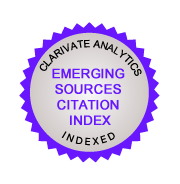Legado arqueológico, academicismo e historia en el setecientos español
DOI:
https://doi.org/10.5944/etfvii.2.1989.2146Abstract
En una obra muy reciente, editada hace apenas un año, el historiador francés Barret-Kriegel, recordando una frase de Momigliano, llama la atención sobre un hecho que invita a la reflexión: «Je voudrais pouvoir me contenter —nos dice este segundo autor— de renvoyer la lecteur á une "histoire des études antiquaires" mais il n'en existe pas...». Esta afirmación, aún no siendo interpretada en términos absolutos, resulta no obstante ilustrativa a la hora de constatar cómo la separación entre los estudios «de anticuario» y las investigaciones históricas se va haciendo cada vez más acusada a medida que transcurren los siglos xix y xx, incidiendo muy negativamente en la atención prestada por los historiadores a temas relacionados con la historiografía del siglo xviii.Downloads
Download data is not yet available.
Downloads
Published
1989-01-01
How to Cite
Nava Rodríguez, M. T. (1989). Legado arqueológico, academicismo e historia en el setecientos español. Espacio Tiempo y Forma. Serie VII, Historia del Arte, (2). https://doi.org/10.5944/etfvii.2.1989.2146
Issue
Section
MISCELÁNEA
License
Authors who publish in this journal agree to the following terms:
- Authors retain copyright and grant the journal right of the first publication with the work simultaneously licensed under a license Creative Commons Reconocimiento-NoComercial 4.0 Internacional that allows others to share the work with an acknowledgement of the work's authorship and initial publication in this journal.

- Authors are able to enter into separate, additional contractual arrangements for the non-exclusive distribution of the journal's published version of the work (e.g., post it to an institutional repository or publish it in a book), with an acknowledgement of its initial publication in this journal.
- Authors are permitted and encouraged to post their work online (e.g., in institutional repositories or on their website) prior to and during the submission process, as it can lead to productive exchanges, as well as to earlier and greater citation of the published work (See The Effect of Open Access).










